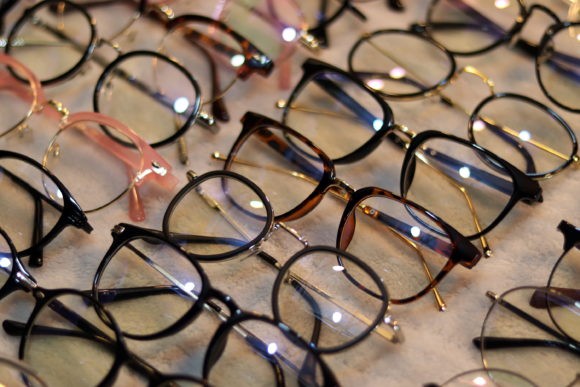A second judge has ruled that a policyholder’s COVID-19 business-interruption claim should proceed, marking an uncommon procedural win for business owners who have seen similar lawsuits dismissed by at least six other state and federal judges.
Bergen County Superior Court Judge Michael N. Beukas ruled against a motion by Franklin Mutual Insurance Co. to dismiss a lawsuit filed by Optical Services USA for business income lost because of the state’s coronavirus lockdown.
The judge said in oral comments that “the term ‘physical’ can mean more than material alteration or damage,” so the burden is on the insurer to show why the lost covered by Optical’s business owner’s policy.
Judge Beukas ruled verbally during a telephonic conference on Aug. 13, but the decision escaped widespread public notice until two law firms blogged about the ruling on Wednesday. The McCarter & English law firm said the decision “rebuts the non-coverage narrative the insurance industry has tried to perpetuate to dissuade policyholders from seeking coverage for their pandemic-related losses.”
That non-coverage narrative has served insurers well in most of the cases that have had dispositive rulings so far. A state judge in Michigan and federal judges in Texas, California, New York and the District of Columbia have dismissed COVID-19 lawsuits, finding that coverage isn’t owed unless there is some tangible physical damage to properties.
Up until the ruling in Optical’s case, U.S. District Judge Stephen R. Bough in Kansas City, Mo. has been the only jurist to rule against a motion to dismiss lawsuits filed against a COVID-19 business- interruption claimant. In Studio 417 v. Cincinnati Insurance, Bough ruled that because the plaintiff alleged that coronavirus was physically present on the property, the case should proceed for further hearings.
Optical did not claim that it was forced to shut down because of the presence of coronavirus; it argued that the civil authority order forcing the business to close amounted to a covered physical loss of the property.
Optical’s policy excluded damages caused by virus contamination, but the insurer and the plaintiff both agreed that the virus exclusion does not apply.

Attorney Michael S. Levine, who blogged about the ruling, said Friday the insurer’s attorney “whiffed” when he told the judge that the virus exclusion did not apply. In other cases, judges had ruled that virus exclusions barred lawsuits seeking coverage for lost income because of virus closure orders.
“I have no idea what the insurance company lawyer was thinking,” Levine said. “I would never imagine in a million years that a client would let me make that argument.”
Nevertheless, the decision marks a much needed win for policyholders, Levine said. He represents plaintiff’s in insurance disputes for the Hunton Andrews Kurth law firm in Washington D.C.
Beukas said Opitical makes an “interesting argument” and a “novel theory of insurance coverage” that warrants further discussion. He noted cases where New Jersey courts have found in favor of plaintiffs seeking coverage for lost income caused by an ammonia leak and a power outage.
Levine said a large body of New Jersey case law supports Beaukas’ finding that even an intangible loss is covered by commercial property policies.
“I would not characterize New Jersey law as unique, however there is clear authority from other courts in the state that do not require tangible alteration to property as a condition to finding physical loss or damage to property,” he said. “Similar decisions have been handed down in courts across the country.”
Beukas’ ruling allows discovery to proceed in Optical’s lawsuit, allowing one small dispute a wide-ranging battle about COVID-19 business interruption coverage to continue. A COVID-19 litigation tracker posted by the University of Pennsylvania Carey Law School shows that 891 lawsuits have been filed that, like Optical, seek coverage for income lost because of civil authority orders. An additional 1,033 lawsuits have been filed seeking reimbursement for lost business income because of COVID-19 closure orders, while 913 lawsuits seek coverage for extra expenses caused by the virus.
“We are in the opening stages of what will undoubtedly be a protracted war over coverage for Covid-19 business interruption losses,” stated attorneys Robert D. Chesler and Nicholas M. Insua with the Anderson Kill law firm. “Companies should review their property policies now, if they have not already done so, and consult with insurance professionals concerning the possibility of coverage and next steps.”
Was this article valuable?
Here are more articles you may enjoy.


 US Will Test Infant Formula to See If Botulism Is Wider Risk
US Will Test Infant Formula to See If Botulism Is Wider Risk  Cape Cod Faces Highest Snow Risk as New Coastal Storm Forms
Cape Cod Faces Highest Snow Risk as New Coastal Storm Forms  These Five Technologies Increase The Risk of Cyber Claims
These Five Technologies Increase The Risk of Cyber Claims  Hackers Hit Sensitive Targets in 37 Nations in Spying Plot
Hackers Hit Sensitive Targets in 37 Nations in Spying Plot 